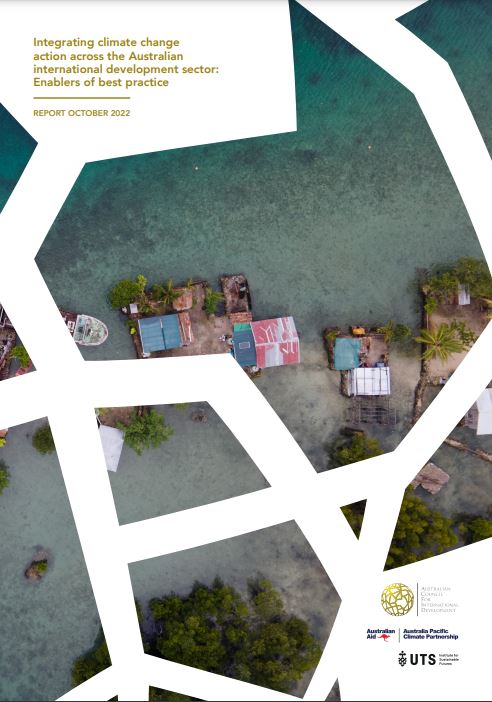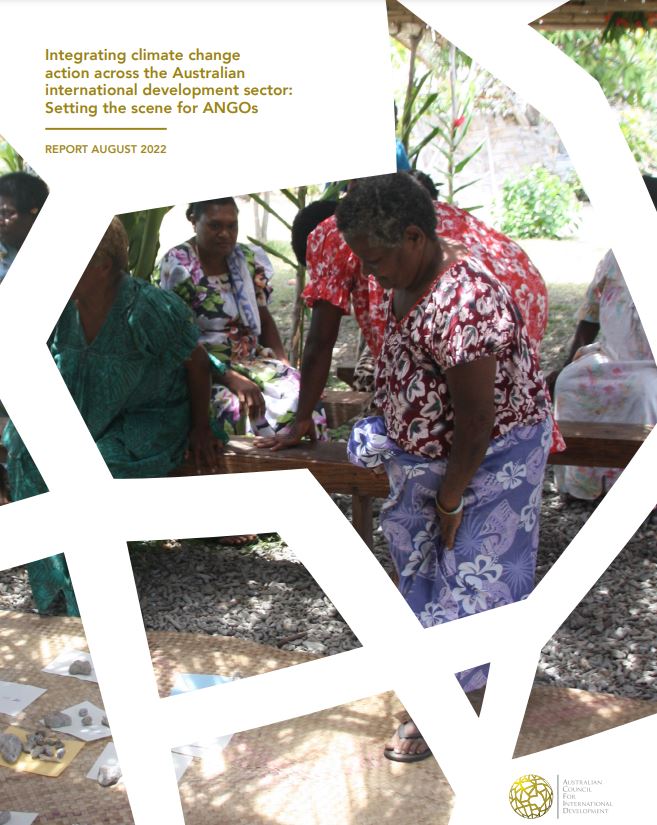Development Practice Committee (DPC)
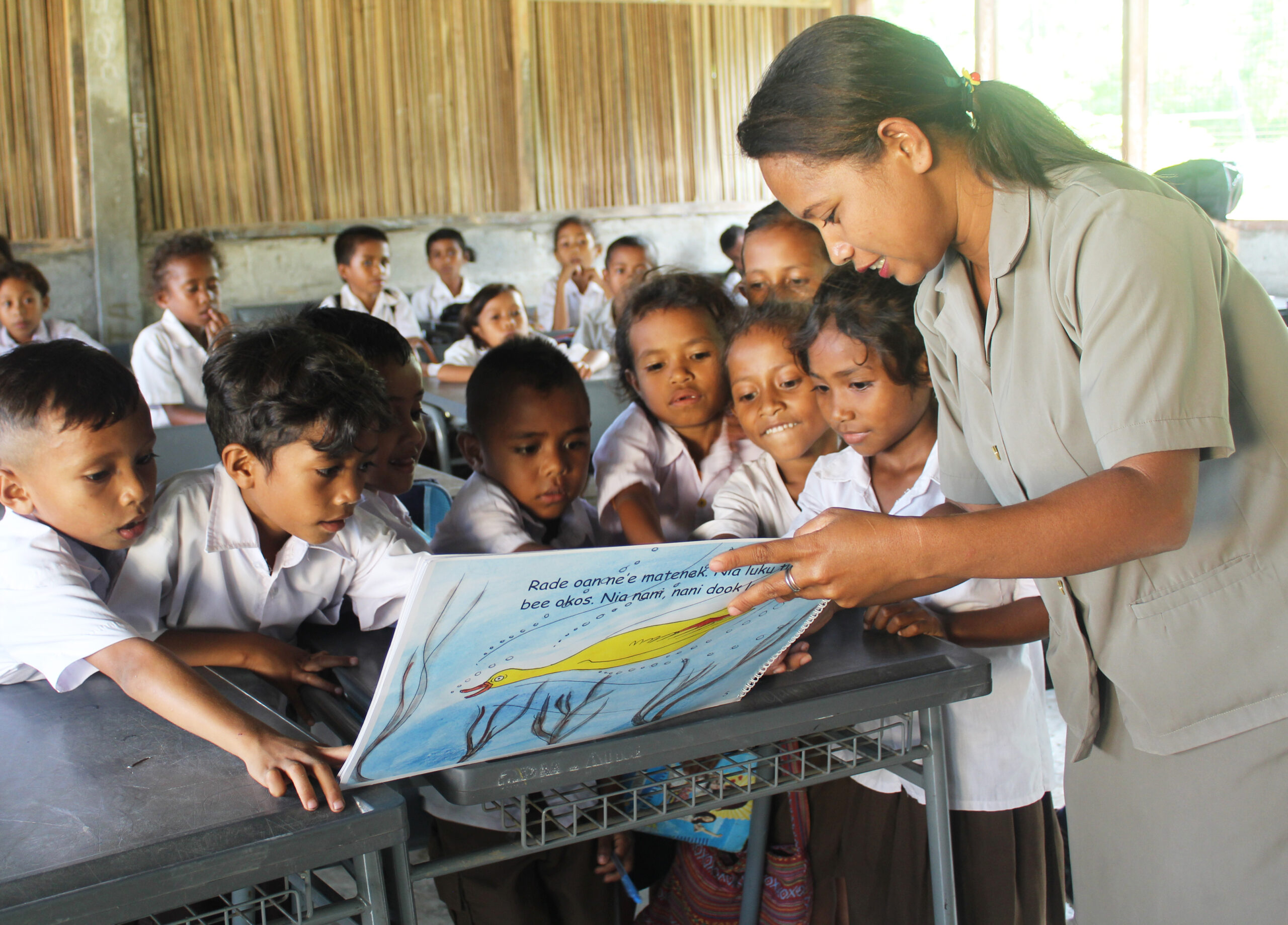
Mary MacKillop Today’s Tetun Literacy & Teacher Training Program in Timor-Leste is providing a way for dedicated teachers to improve their skills in the classroom, helping children to engage in learning. Photo: Mary Mackillop Today
The Development Practice Committee (DPC) is an expert advisory group where learning and development practitioners from the not-for-profit sector meet to:
- Lead good practice within the sector
- Undertake applied research and development of tools and processes
- Provide relevant advice to ACFID on key issues around development effectiveness affecting the sector
- Engage with DFAT on development effectiveness practice.
Membership and Meetings
DPC meetings take place at least three times each year over either one or two days, rotating between F2F and virtual. The Terms of Reference for the Committee can be found here.
Members are expected to come to meetings well prepared and to bring the support of their organisation with them.
The DPC has ten members. DPC member terms run for three years which is renewable to encourage continuity.
The membership is open to anyone from an ACFID Member organisation with an interest in organisational learning in the international development sector and experience in program implementation and monitoring and evaluation. The group may also include external experts such as academics, engaged consultants or subject matter experts from think tanks.
Current DPC members are:
Co-chairs
Matthew Maury, Tearfund Australia, Board Champion
Tracy McDiarmid, World Vision Australia
Committee members
Anthony Zwi, UNSW
Elsa Carnaby, Oxfam Australia
Ai Leen Quah, Quaker Service Australia
Gemma Porter, The Fred Hollows Foundation
Dan Skehan, Caritas Australia
Fiona Tarpey, Australian Red Cross
Belinda Lauria, UNICEF Australia
Keren Winterford, University of Technology – Institute for Sustainable Futures
Work
In 2023 the Committee is prioritising work around Climate Change, Localisation and Performance and Effectiveness. This includes work and advice on:
- Extending the ACFID Climate Action Framework to provide practice based guidance for integrating climate change action across the Australian international development sector through a research partnership with the Institute for Sustainable Futures, University of Technology Sydney. This includes leading an ACFID Conference session and producing guidance, case studies and learning tools on enablers for best practice.
- Establishing a common framework for locally led action by Australian NGOs and agencies in humanitarian responses and international development in partnership with Alinea International.
- Providing consultation advisory role for ACFID’s Code of Conduct review.
- Acting as an Evaluation Reference Group for the Independent Evaluation of the Australian NGO Cooperation Program (ANCP).
In 2021/22 the Committee prioritised work around Climate Change, Localisation and Performance and Effectiveness. This included work and advice on:
- Climate Change member scoping workshop and targeted support for member practice
- ACFID Member Climate Action Framework
- Localisation Thinkpiece and collaboration with the ACFID Humanitarian Reference Group Localisation Working Group (HRGLWG)
- ACFID Conference session on locally-led development, with La Trobe University and the ACFID HRGLWG
- Discussion with DFAT on Performance and Effectiveness (ANCP Review and Partnerships for Recovery review)
- Acting as a Evaluation Reference Group for the DFAT ANCP Review
Resources
Integrating climate change action across the Australian international development sector: Enablers of best practice
Provides grounded and practical examples of best practice for climate change integration. Case studies are linked to different aspects of ACFID’s Climate Action Framework to demonstrate the various approaches some organisations have taken to integrate climate action into policy, programs and practice.
Integrating climate change action across the Australian international development sector: Setting the scene for ANGOs
Describes the system in which Australian NGOs operate for integrating climate change considerations in their development programming, and also provides a background of the types of climate change programming ANGOs undertake, and their local engagement approaches in-country with links to the ACFID Climate Action Framework.
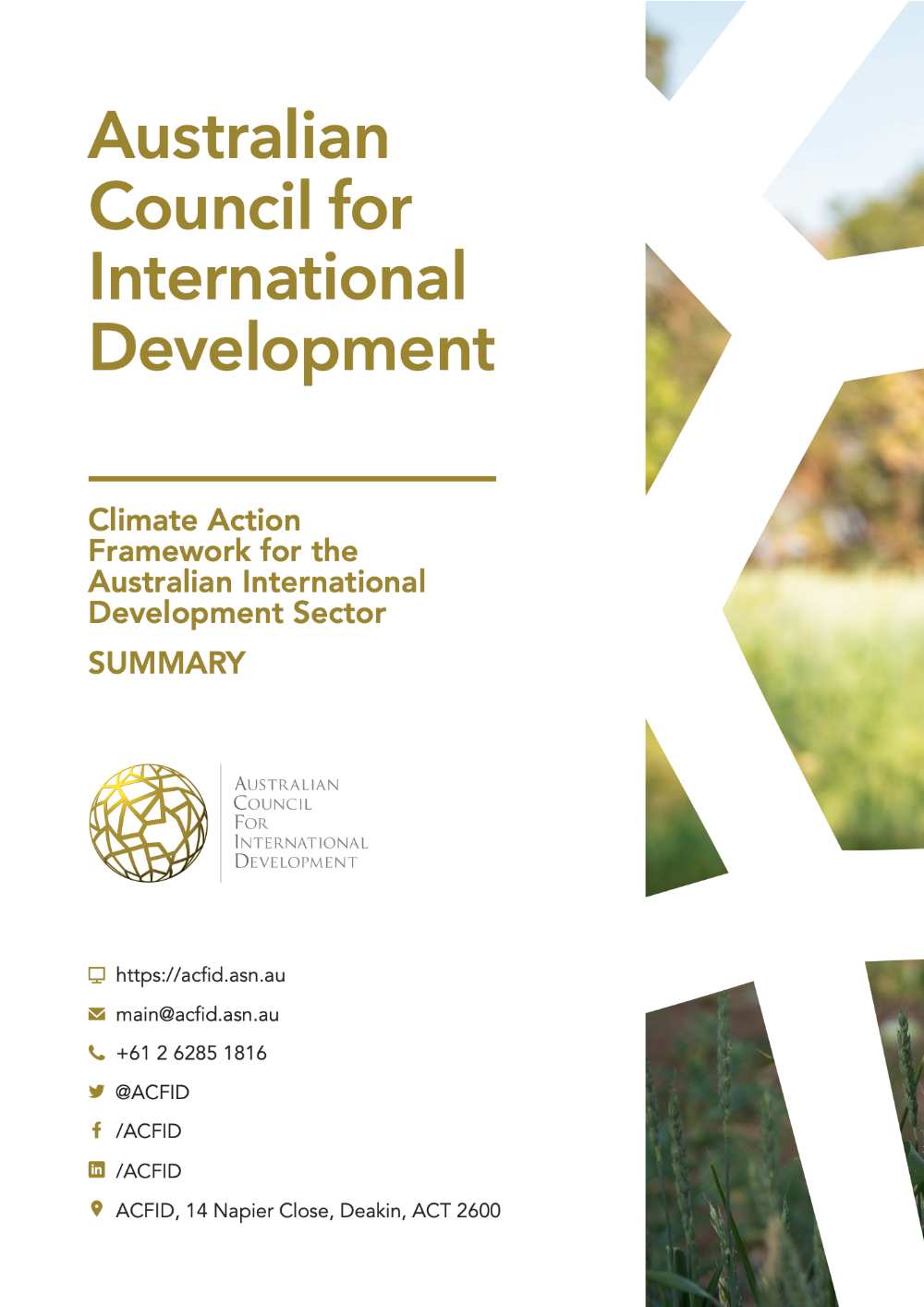
Climate Action Framework - Summary
Provides a summary of the framework which addresses climate action.
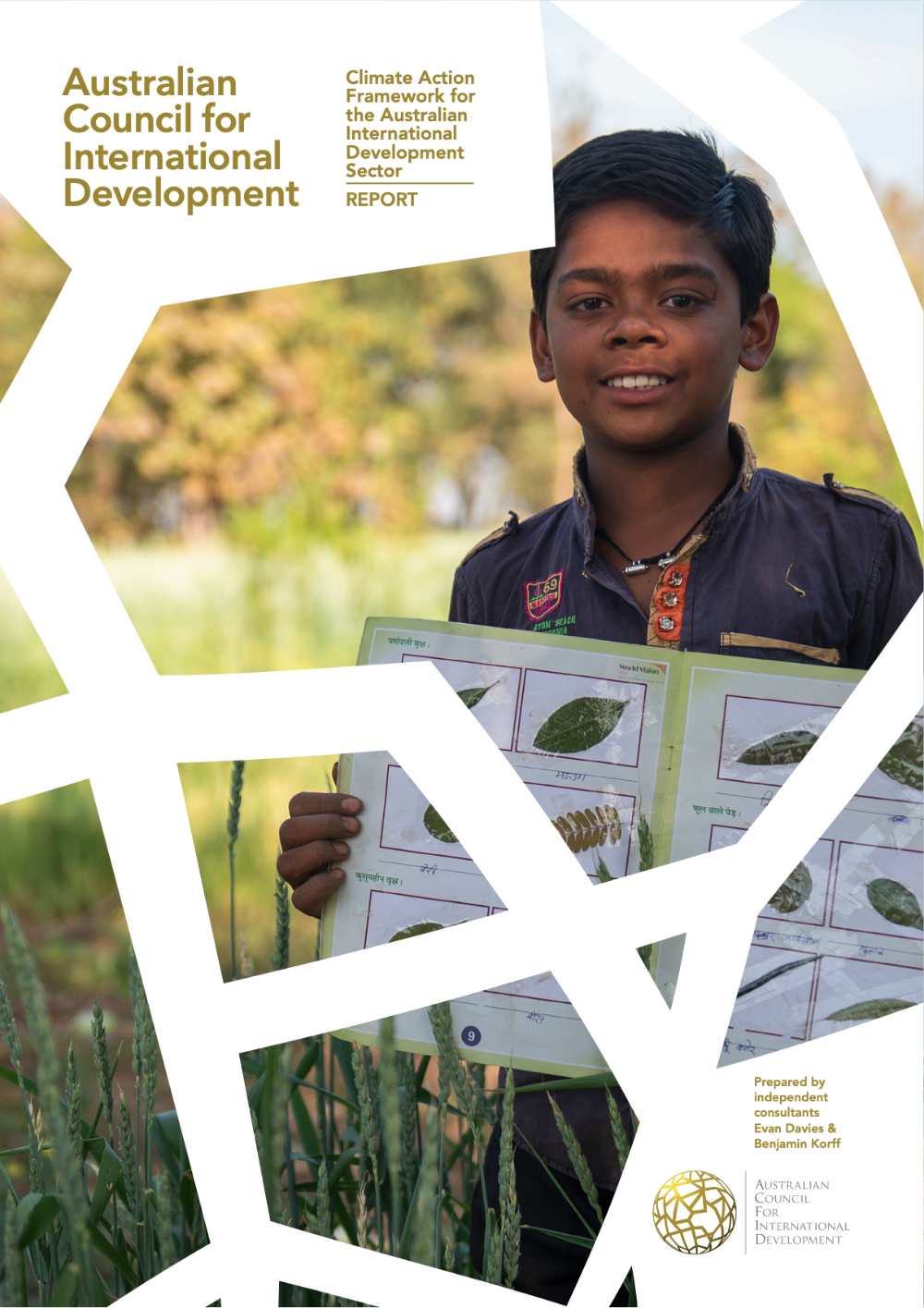
Climate Action Framework - Full Report
This framework seeks to address this issue by providing a clear typology of climate actions relevant to Australian NGOs.
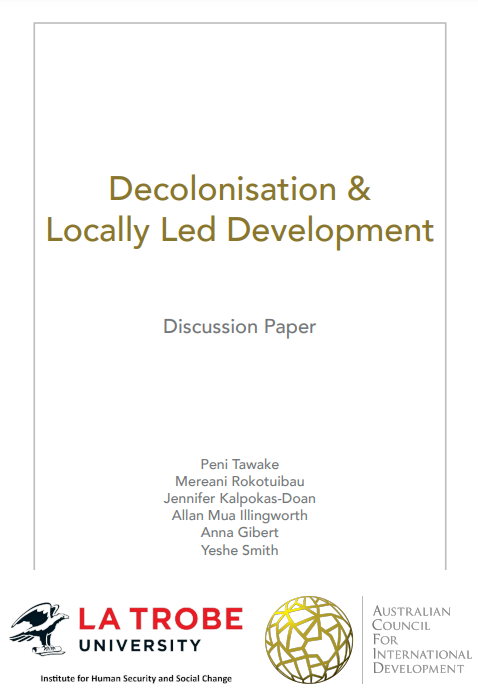
Decolonisation and Locally Led Development Paper
Support and guidance for ACFID members and their staff to get started on their decolonisation journeys.
Yielding & Wielding Power Toolkit
Sets out practical options for individuals and organisations to further the decolonisation and locally-led agendas.




